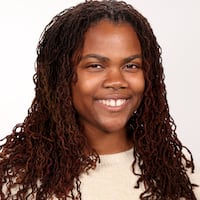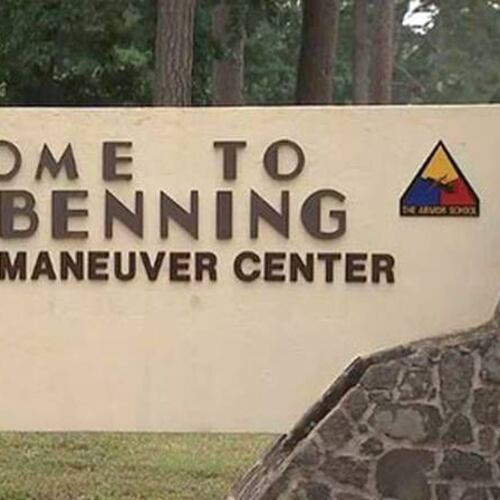When Georgia native Arnell Ponder was arrested and beaten alongside Fannie Lou Hamer and other civil rights activists, the then 31-year-old had recently left a citizenship workshop.
“I was returning on June 9, 1963, from a workshop in voter education and community development held in John’s Island, South Carolina,” Ponder, an Atlanta resident, said in her affidavit.
Those workshops were created by Septima Clark and served as a core piece of the circa 1960s civil rights movement that focused on ending legal segregation and securing African Americans voting rights. The spread of the workshops opened up the possibilities for Black people across the South to get involved in the movement and become active citizens, whether they were sharecroppers or others who lacked a formal education.
Prior to the passage of the 1965 Voting Rights Act, each state had its own requirements for voter registration. But most Southern states required literacy tests, a deliberately cruel hurdle for Black Southerners because it had been illegal for slaves to learn to read and write, and education barriers remained for most African Americans after slavery ended.
Credit: Library of Congress
Credit: Library of Congress
Clark knew that teaching literacy was the key to preparing African Americans to overcome obstacles to voting. So she established a program that taught people across the South how to read, write, understand local politics and get involved in the democratic process.
Across the country, nearly 900 citizenship schools had opened by 1970, with nearly 200 opened in 1964. The first was established in Johns Island, South Carolina, in 1957 with the help of the Highlander Folk School and activists Myles Horton, Esau Jenkins and Bernice Robinson. They disguised the school by putting a grocery store in front and the two-room school in back.
“We planned the grocery store to fool white people,” Clark wrote in the book “Ready From Within.”
She met students where they were and taught them about signatures, banking, the Constitution, and much more. Clark valued respecting and listening to people, empowering them to lead when they returned home.
“I don’t think that in a community I need to go down to the City Hall and talk,” she said during an oral history interview. “I think I train the people in that community to do their own talking.”
* * *
Septima Clark was born in 1898 in Charleston, South Carolina. Her mother, Victoria Warren Anderson Poinsette, was raised in Haiti. And her father, Peter Porcher Poinsette, born enslaved, grew up on the Poinsett plantation in South Carolina. Clark said her father came to Charleston by way of the Wanderer, a ship that illegally transported the last large group of enslaved Africans, which landed at Georgia’s Jekyll Island in 1858.
Clark graduated from high school in 1916 but couldn’t attend college immediately, though she later earned bachelor’s and master’s degrees. She began her teaching career on Johns Island because her hometown of Charleston didn’t allow Black teachers. She eventually taught in Charleston and Columbia for years before she was fired in 1956, and lost her pension, because of her involvement in the NAACP. When she focused on teaching literacy courses at Highlander Folk School, her years as an educator influenced her approach.
Credit: Library of Congress
Credit: Library of Congress
In 1959, she was arrested during a raid at Highlander and had to face a judge in Tennessee. By 1961, Clark had suffered two heart attacks.
Eventually, she began traveling across the South as the director of teaching for the Southern Christian Leadership Conference. She taught and recruited people to the new citizenship school home base: the Dorchester Center in Liberty County, Georgia.
* * *
Clark had a “healing presence,” according to poet, playwright and author Josephine Carson. Clark was considered a warm, generous and motherly figure, and as an activist she was less outspoken than her peer Ella Baker. But like Baker, she considered men’s treatment of women to be one of the civil rights movement’s flaws.
Men often wouldn’t give women credit for their ideas or allow them to speak in workshops or meetings. Ralph David Abernathy would specifically question Clark’s presence at the SCLC, she said. And although she worked with the Rev. Martin Luther King Jr., he gave her similar problems.
“I think that there is something among the Kings that makes them feel that they are the kings, and so you don’t have a right to speak,” she wrote. “You can work behind the scenes all you want. That’s all right. But don’t come forth and try to lead. That’s not the kind of thing they want.”
Some believe Clark’s role in the movement is underrated or underappreciated. Clark risked her life to increase literacy and political participation among African Americans and empower them to change their communities.
As Clark said, she and her citizenship workshop students “had to feel that we could get away with it or that we didn’t mind if we had to die.”
Clark died in 1987 at age 89.
BLACK HISTORY MONTH
Throughout February, we’ll spotlight different African American pioneers ― through new stories and our archive collection ― in our Living and Metro sections Monday through Sunday. Go to AJC.com/black-history-month for more subscriber exclusives on people, places and organizations that have changed the world, and to see videos on the African American pioneers featured here each day.
About the Author
Keep Reading
The Latest
Featured






